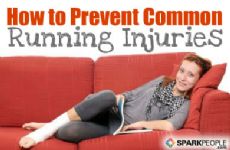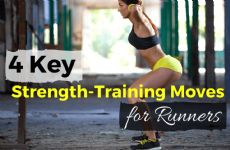|
Running seems like a pretty low-maintenance activity—just you, the shoes, the road and you're off, right? That doesn't mean there aren't a million-and-one gadgets and gizmos out there, though, each one promising to make your next run the best one of your life. Particularly when you’re new to running, it’s easy get suckered into buying every tool and trapping that salesclerks and seasoned runners recommend. But keep in mind that people at running stores are trying to make a sale, and your running friends may have different preferences or priorities that compel them to buy certain items that aren't necessarily essential for you. To find out what gear is likely to collect more dust than mileage, six real runners weighed in on the “essential” gear that is a waste of money. Before spending your hard-earned cash on high-priced equipment that will supposedly make you a fleet-footed running machine, check out this list. 9 Things Runners Don't Need1. Running-Specific Clothes From shorts to jackets to socks, apparel companies are notorious for pigeonholing clothing items for certain activities, but trainer Alex Haschen says not to buy into the hype. "By marketing a shirt or shorts as 'running' specific, brands can jack up the price significantly," he says. "My advice is to wear whatever is weather appropriate, light and nonrestrictive. Shorts and a cheap poly T-shirt usually do the job." Before heading to the store, check your closet. You most likely already have some options that are perfectly suitable for running. 2. Ankle or Wrist Weights While it's great to challenge yourself and aspire to get the most out of your running workout, ankle and wrist weights are generally an unnecessary accessory—and might even be a dangerous one. According to Coach Nicole, the risk of injury far exceeds any potential benefit of muscle strengthening or calorie burning. There are other, safer ways to add resistance to runs, such as incorporating hills into your route, playing around with speed work and gradually increasing distance. If building strength is your goal, adding a few simple strength-training moves to your routine can make a world of difference. 3. Water Belts Sure, it's important to stay hydrated during exercise, but unless you're running a significant distance, Haschen says that carrying water on a belt isn't very efficient. "Hydration can be accomplished with pre- and post-run water consumption," he says. "I would consider taking water with you only if the temperature is over 85 degrees or you're running over six miles." 4. Running-Specific Nutrition From gooey gels to energy bars to sports drinks, there's a whole slew of nutrition staples that promise to fuel runners the right way. Running coach Kyle Kranz says that most runners, especially those who are new to the sport, probably aren't going far enough or hard enough to require special nutrition before, during or after a run. "Typically, it's suggested that for runs under an hour, you don't need any extra hydration or calories aside from what you may eat or drink on a regular basis," Kranz explains. "For an introductory 5K training schedule, for example, you probably aren't going long or hard enough to require anything supplementary." 5. Insoles Many runners use special inserts to correct imbalances in their feet, provide extra cushioning or minimize impact—but is all that shoe stuffing necessary for everyone? According to Matt Fitzgerald, author of "The Endurance Diet," insoles are one of the products that runners most often regret buying. "Over-the-counter shoe inserts work well for some runners, but their effects are individual and unpredictable," he warns. "So, when runners buy insoles on the recommendation of a friend who did get good results, the money often ends up being wasted." 6. High-End Watches With so many fancy and downright futuristic pieces of technology available to runners, it's hard to resist splurging on a fitness-oriented watch. While these gadgets do provide some valuable insights into each run, they tend to be very pricey. For first-time runners, Haschen recommends simply using a cell phone and downloading a free running app, most of which provide much of the same data as the GPS watches and smartwatches. "I would suggest waiting to see if you're going to stick with running long-term before forking over hundreds of dollars for a wearable tracker," he says. 7. Fancy Sunglasses There's nothing worse than getting caught without your shades during a sunny run—but that doesn't mean you have to drop a three-digit amount on them. Your sunglasses don't have to be running-specific, either: As long as they're comfortable, provide enough field of view and stay in place, they'll fit the bill. "Cheap $5 sunglasses provide exactly what I need," says runner and fitness coach Erinn Whitehead. 8. Compression Garments All the "serious" runners wear those brightly colored compression sleeves and socks to races, so they must be essential, right? Not always. Although compression garments can help to speed up recovery by improving circulation, they're not automatic must-haves for new runners. "Wait to see what your body does and how it responds to running before you go out and get stuff that is typically reserved for distance and marathon runners," recommends recreational runner Rebecca Sheerer. 9. Running Books If you're just starting out, you likely have lots of questions about what to do, what not to do and what to expect. There are plenty of seasoned runners who are eager to pass along (i.e. sell) their wisdom, but don't feel like you have to spend money on a bunch of running books. You can find more than enough valuable information on free websites. Cruise on over to SparkPeople's Running Guide for dozens of helpful articles. Which items did you purchase that you wish you hadn't? On the flip side, what running gear do you never leave home without? |
Related Entries
More From SparkPeople
|






















